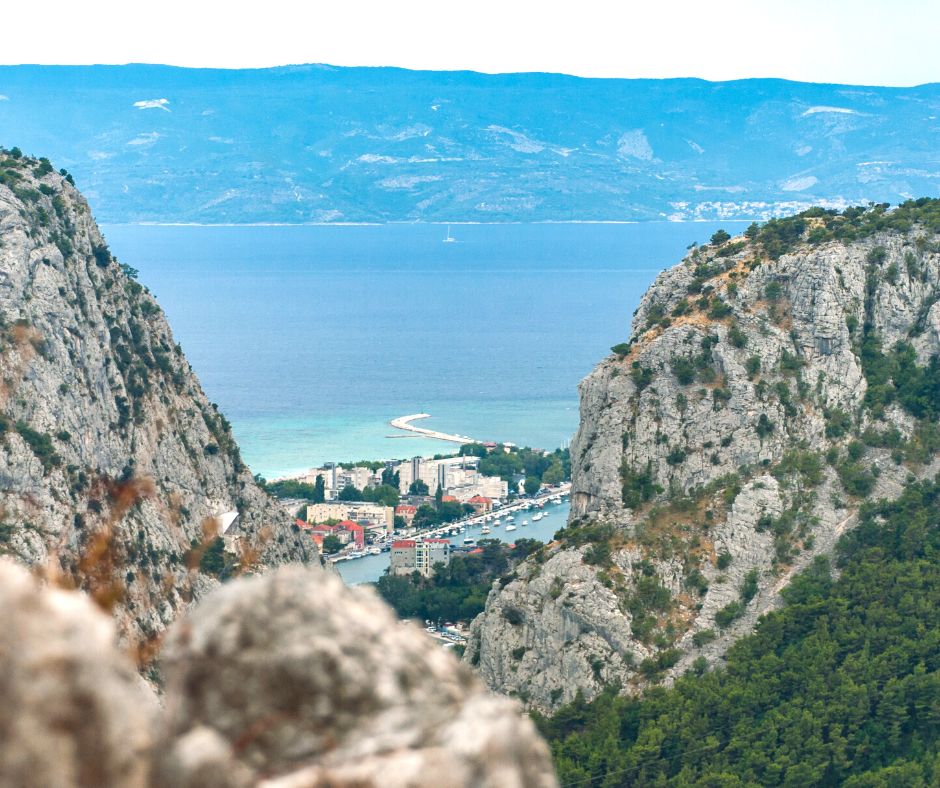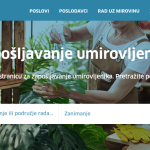Rain greeted the participants of the Omiš Watercare project’s final meeting, where the results of the impact of summer showers on microbiological pollution of the Cetina River and the famous Omiš sandy beach were presented.
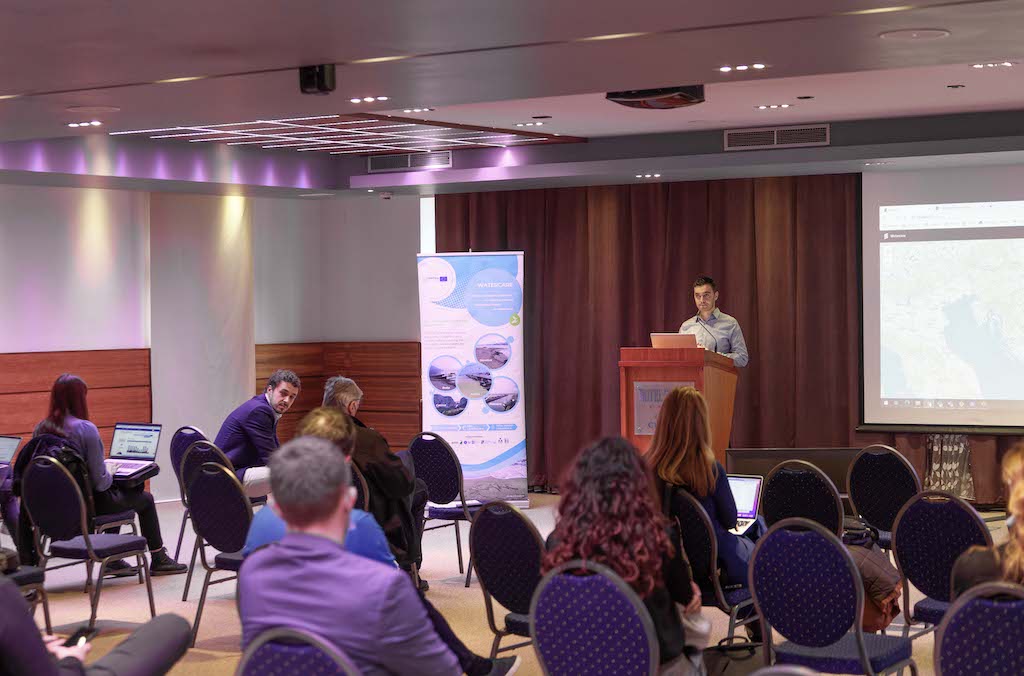
“Cetina is the source of life and economy in much of Dalmatia, from Vrlika to Omiš, all places and cities are connected to the Cetina, and our islands Brač and Hvar depend on it. Therefore, the importance of this river in our lives is indescribable, and that is why we hope that the results of the research are encouraging and that they will give us guidelines for its preservation and protection,” said Žarko Kovačić, Deputy Mayor of Omiš, with a warm welcome to the participants.
On behalf of the organizers and partners in the project, Split-Dalmatia County, Anđelko Katavić, Head of the Administrative Department for Economy, EU Funds and Agriculture, explained the complementarity of this with another project implemented by the county on sustainable use of the Cetina River Basin:
“One of the greatest natural resources of our county and state is water, and on the example of the Jadro River, we see how many problems can be caused by more and more frequent showers that increase the parameter of drinking water turbidity. As the name of the project itself says, water should be taken care of, and the knowledge, equipment and instruments we have implemented through the project allow us to react in the event of an emergency as soon as possible.”
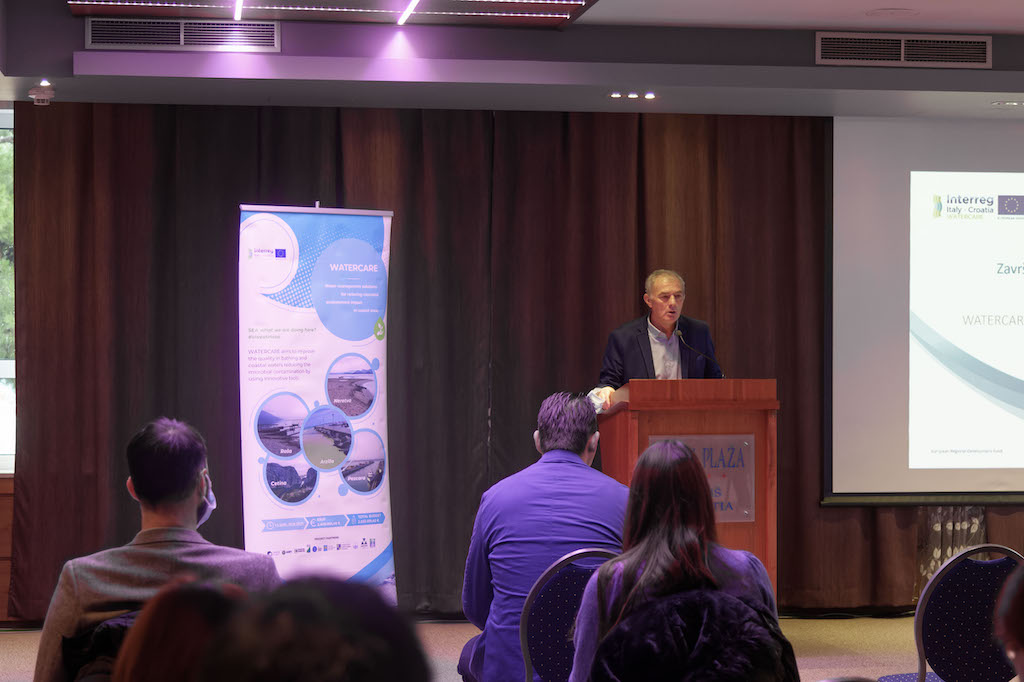
Generally speaking, the quality of the Split-Dalmatia County sea is excellent; only in some places near rivers and streams is the bathing level lower quality. Martin Bućan, meeting moderator and senior advisor from the Administrative Department for Economy, EU Funds and Agriculture, answered if this is happening at the mouth of the Cetina River.
He explained that automatic water sampling was carried out in the downstream part of the Cetina estuary, using two automatic measuring stations that measured several parameters such as water and air temperature, pressure and humidity, precipitation, wind direction and speed. In addition, specially installed measuring probe water parameters such as salinity, temperature, pH, turbidity, etc., were also examined, including E. coli bacteria and intestinal enterococci in the laboratory. At the same time, at regular intervals from May to October this year, seawater samples were analyzed near the mouth of the Cetina River at six locations in Omiš. Fundamental physicochemical quality indicators and bacteriological indicators, i.e., the presence of E. coli and intestinal enterococci, were also analyzed in seawater samples. Seawater samples were always taken during the morning hours and after completing the sampling of automatic stations. Sampling was carried out in different meteorological conditions, during sunny weather and after heavy rainfall.
“Out of a total of 42 seawater samples collected from six measuring stations after rainy weather, 39 were rated excellent, one sample rated good, while two samples were inconsistent. Therefore, research has shown that there is a slight increase in bacteriological pollution of the sea after extreme rains. However, these values are low on Omiš beaches and still within the parameters of the sea category of excellent quality,” concluded Martin Bućan.
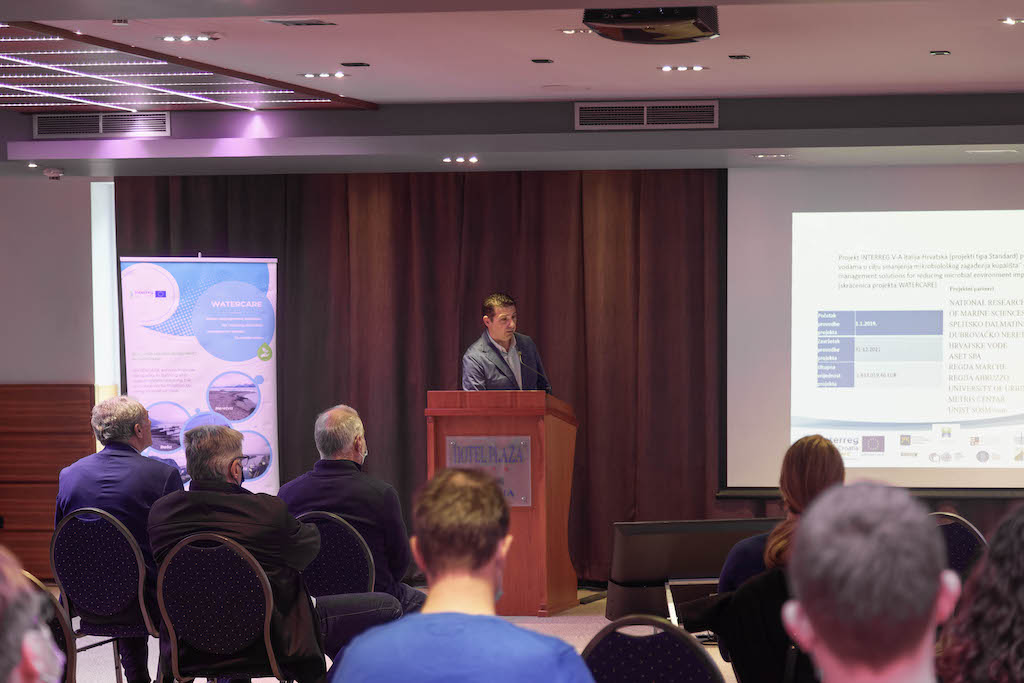
All data obtained from the probes and physical sampling of the sea are transferred to the Watercare project online application, presented by Goran Kopčak from Ericsson Nikola Tesla, an external contractual partner. He explained the functionalities and user interface of the created network application through which numerous stakeholders in the project can access data. Furthermore, thanks to the machine learning concept application, the platform will automatically be able to alert the responsible persons of the County, Civil Protection Headquarters, the City of Omiš, firefighters, and others due to the risk of the increased possibility of bacteriological pollution in the sea.
Once again, the Watercare project confirmed the importance of bringing together all stakeholders with scientific research institutions, which was further argued in their presentation by Marko Mimica and Gina Bilankov from EHCR. They presented a feasibility study to implement innovative solutions of the Cetina River and guidelines for coastal water management following international regulations, as well as the possibility of further financing the developing activities from this project from EU funds.
Water management solutions for reducing microbial environment impact on coastal areas is the full name of the project worth a total of 2.8 million euros, which lasts almost three years and is implemented within the cross-border cooperation program Interreg Italy – Croatia.
To read more about lifestyle in Croatia, follow TCN’s dedicated page.

